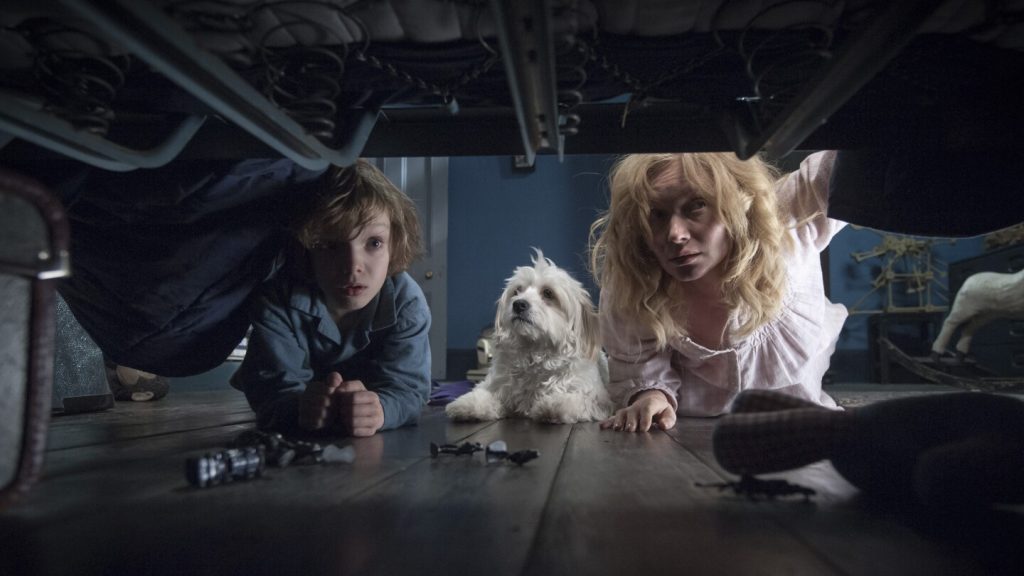“The Babadook,” a 2014 indie horror film directed by Jennifer Kent, initially flew under the radar with its release in just two theaters. However, over the past decade, the film has gained a cult following and is now seen as a significant milestone in the horror genre. Kent, inspired by the death of her father, infused the film with themes of grief and suppressed emotions. The story follows a single mother struggling to raise her son after her husband’s tragic death, with a sinister figure from a pop-up book haunting them. The film’s success paved the way for a wave of challenging and artistically driven horror movies like “It Follows,” “Get Out,” and “Hereditary.”
Kent, now 55, reflects on the unexpected success of “The Babadook” and the impact it has had on her career. While she didn’t set out to change the horror genre, she acknowledges the film’s place within the tradition of elevated horror. The film’s production design, influenced by filmmakers like Carl Dreyer and F.W. Murnau, created a visually striking world for the story to unfold. Kent’s attention to detail, from color schemes to set design, was a crucial element in creating a believable yet eerie atmosphere for the film. Despite the film’s success, Kent admits that she rarely watches it and prefers to focus on her other works, like her 2018 film “The Nightingale.”
As Kent looks back on “The Babadook,” she emphasizes the importance of protecting original and independent films in the current cinema landscape. She expresses concern about the challenges filmmakers face in getting their work made and the risk of homogenized content in the industry. Kent’s commitment to preserving the integrity of her vision for “The Babadook” speaks to her dedication to creating meaningful and impactful cinema. She also reflects on the reception of her films, noting the contrasting reactions to “The Babadook” and “The Nightingale,” as well as the criticism she faced for the latter’s portrayal of difficult themes.
Kent’s portrayal of motherhood in “The Babadook” stands out for its honesty and raw depiction of maternal struggles. The flawed and imperfect portrayal of the film’s mother character resonated with audiences, who appreciated the realistic portrayal of motherhood. Kent’s exploration of repressed emotions and the impact of unresolved grief on individuals is a central theme of the film. She delves into the complexity of human emotions and the consequences of avoiding painful experiences. Through her characters, Kent highlights the importance of acknowledging and processing difficult emotions to live a fuller life.
As Kent navigates the evolving landscape of film and storytelling, she remains dedicated to creating meaningful and impactful works that resonate with audiences. She acknowledges the challenges of being a filmmaker in a constantly changing industry and emphasizes the need for care and authenticity in storytelling. Kent’s commitment to preserving the integrity of her work and staying true to her artistic vision is a testament to her passion for cinema. As she reflects on the legacy of “The Babadook” and her subsequent projects, Kent continues to push boundaries and explore the complexities of human emotions through her storytelling.


